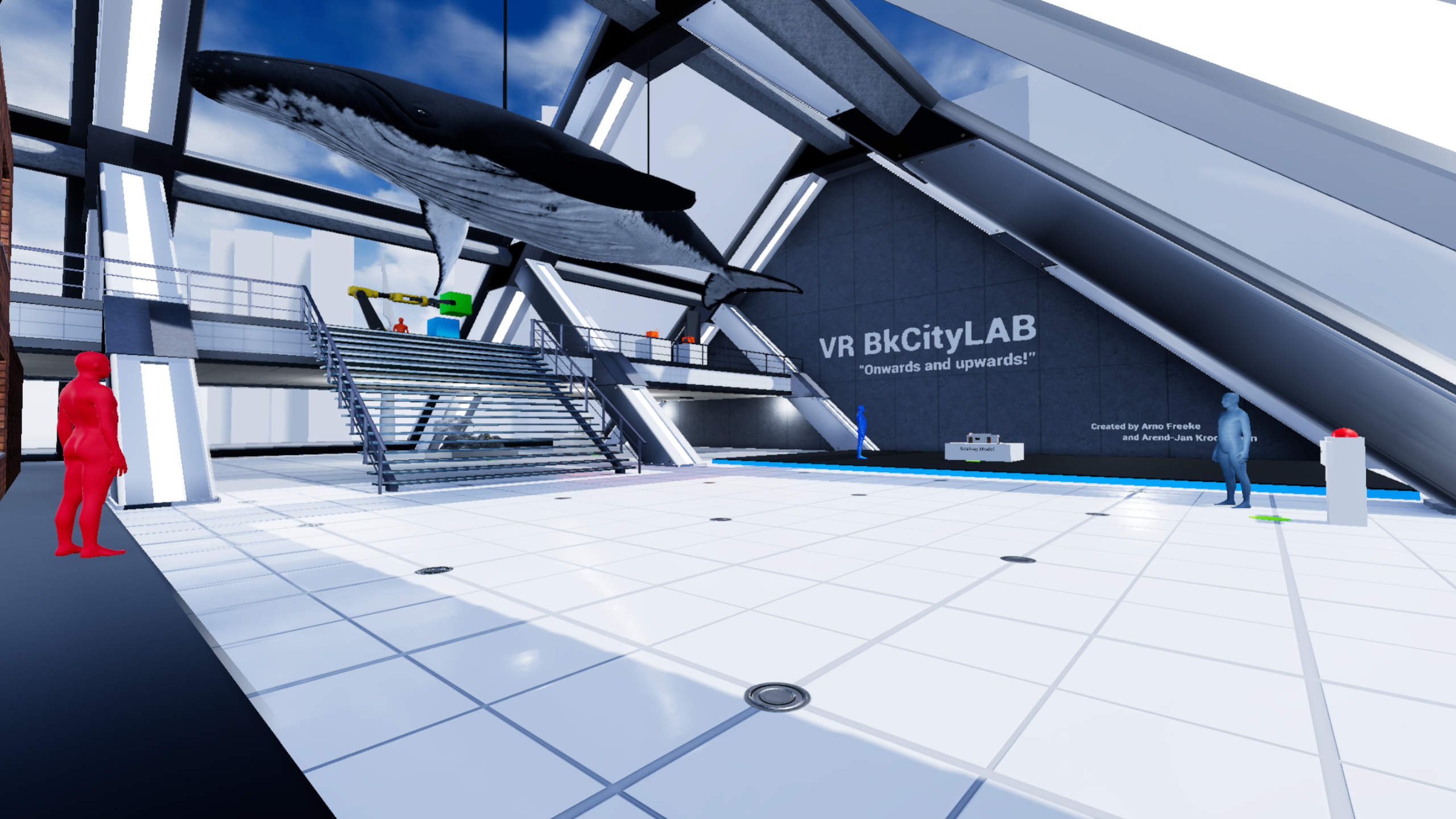
BK City Lab
Initiator: XR Zone team (pre-establishment phase) Duration: ~1 year Platform: HTC Vive, Unreal Engine Focus: Architectural exploration, VR awareness, early-stage prototyping
Before the XR Zone formally existed, the BK City Lab acted as a pioneering ground for virtual reality in architectural education. It was the first project to showcase how immersive technology could transform the way architects visualize and interact with space. Developed during the early adoption of the HTC Vive headset, this lab served both as a technical showcase and a strategic pitch for VR integration at TU Delft.
The demo suite included multiple interactive experiences:
- A scalable architectural model you could walk through and resize
- Modular building blocks for free-form construction
- A 3D printing model for technical inspection
- A VR drawing tool that allowed users to sketch spatial concepts in mid-air
These features demonstrated the tangible value of immersive design, bridging abstract architectural thinking with embodied spatial engagement. It wasn't just a technical experiment — it was a cultural shift in how spatial ideas could be communicated and explored.
The initiative was strongly supported by Dean Peter Russell, whose interest in emerging technologies helped secure the first round of funding for what would become the XR Zone. As a result, the BK City Lab became the origin point for TU Delft’s broader virtual reality infrastructure, proving that early experimentation, even on a small scale, can seed major institutional innovation.
